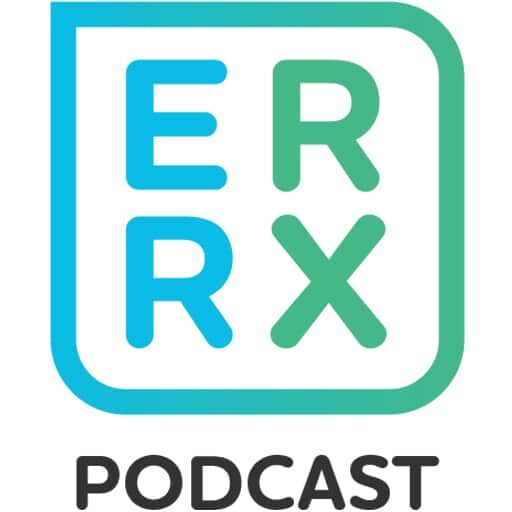Episode 74- An Expert Talks: Intricacies of Hyperkalemia Management
Episode Summary:
Not your average hyperkalemia episode! Jimmy Pruitt, host of the Pharm-So-Hard podcast, shares some pearls on hyperkalemia management
Show Notes:
Key Points:
“‘An Expert Talks: Intricacies of Hyperkalemia Management”:
– HyperK can cause muscle weakness, paralysis, cardiac conduction abnormalities/ arrhythmias (bradycardia, cardiac arrest, ventricular tachycardia/fibrillation), peaked T waves/ loss of P waves, and widening of the QRS interval. Remember that a normal EKG does not exclude significant hyperK and that EKG changes can happen at lower K levels (<5.5 mEq/L)
– Calcium works by “stabilizing” the cardiac membrane by (in a nutshell) making the resting potential more negative and by increasing the threshold potential. We should see EKG normalization within minutes, but effects may only last 30-60 minutes, so re-dosing may be necessary. 1 g IV Ca chloride contains 3x more calcium than 1 g IV Ca gluconate (13.6 vs 4.6 mEq) and is preferred in emergent situations (EKG changes, peri-arrest)
– Insulin works by driving K into cells by enhancing the activity of the Na-K-ATPase in skeletal muscle. It is given as 5-10 units (or 0.1 units/kg) IV regular insulin, with the 5 unit dose being optimal — do not give it subcutaneously. It can lower the K by ~1 mEq/ L and should start to work within 10-20 mins, peak at 30-60 mins, and last 4-6 hours (can repeat every 2-6 hours)
– Glucose/dextrose (25-50 g IV) is mainly given with IV regular insulin to prevent hypoglycemia and can be held if BG is > ~200; it should not be used alone without IV regular insulin as a shifting agent
– Albuterol works by shifting K into cells by enhancing the activity of the Na-K-ATPase. It is given as 10-20 mg nebulized over 10 minutes. It can lower the K by 0.5-1.5 mEq/L
– Resins/ cation exchangers like patiromer, sodium zirconium cyclosilicate (SZC; Lokelma), and SPS (Kayexelate) bind K in the GI tract. These agents are typically used as a bridge to dialysis in patients without severe hyperK. They have minimal effect on K levels, lowering K by 0.37 mEq/L at four hours. SPS has been associated with intestinal necrosis and contains 1500 mg sodium for every 15 g dose
– Sodium bicarbonate theoretically works by binding H+, causing the H/K pump to pull in K in exchange for an H– with minimal/no effects on the K level. Consider giving it as 150 meq/ L (isotonic) over 2-4 hours in patients with metabolic acidosis and use the 50 mEq amp of bicarb (hypertonic) if you have EKG changes
– Loop diuretics increase K excretion in the urine. It is given as 40 mg IV furosemide BID or a continuous infusion. It will not be very effective for patients that do not make urine (use resins instead)
– Hemodialysis– mostly indicated in patients who are already on HD or have CKD, in consultation with nephrology. It is preferred to the resins if the procedure can be performed ASAP
